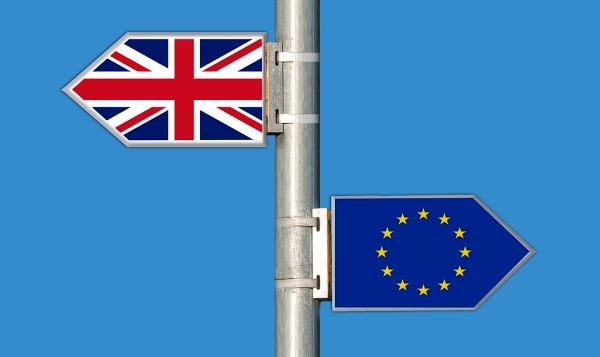How should we cope with Brexit uncertainty?

Britain’s intended withdrawal from the EU has dominated recent news bulletins, but Mark Fairweather Tall explains how we can cope with all the uncertainties that spring up in our lives
June 23, 2016 has gone down in history as the day the referendum was held, and the UK voted to leave the European Union. Following the trigger of Article 50, March 29, 2019 will be the day the UK leaves the EU… probably or maybe even possibly! Negotiations have been far from easy and this has led to a high level of uncertainty
Last weekend the negotiated deal was ratified by European leaders with the message “This is the best deal possible”. However, the next stage, bringing the deal before Parliament, looks to be the most challenging yet! Amidst all the disagreements there appears to be one area of common consensus; the deal as it stands is unlikely to gain the support of enough MPs: Labour, the Liberal Democrats, the SNP and the DUP are against it; committed ‘Brexiteers’ and ‘Remainers’ are dismissive of it. Of course, as Harold Wilson famously said “A week is a long time in politics” and so everything might change
But what if it doesn’t? What if the deal is voted down? Then we will be in for a further period of even greater uncertainty. Will Teresa May survive as Prime Minister? Will there be a vote of ‘no confidence’ in the Conservative government precipitating a general election? Will the timing of the EU exit be postponed? Will we have a second referendum? Is there time to negotiate a new deal or will we crash out without a deal? Articles have been written warning us that leaving with ‘no deal’ could lead to a shortage of clean drinking water, medical supplies and fast-emptying supermarket shelves; cheese will be scarce and Mars Bars extinct! Is there any positive way through all of this?
For now, we do not know for sure what will happen but it is clear that we live in uncertain times. This lack of certainty can be most unsettling as we look to what the future might hold. Uncertainty and a lack of peace in looking to the future is something that can hit us not only on a national scale but also through other things that impact our individual lives: our employment may not be secure; our health may give us great cause for concern; our finances insufficient for the bills we receive. All these things and more can lead to a lack of peace as we face the future and ask is there any positive way through this?
Perhaps it isn’t surprising, therefore, that one of the most underlined and shared verses of Scripture on Bible Apps is Philippians 4:6-7: “Do not be anxious about anything, but in everything, by prayer and petition, with thanksgiving, present your requests to God. And the peace of God which transcends all understanding will guard your hearts and your minds in Christ Jesus”. When we face uncertainty and are worried about what the future might hold, we want to seek peace amongst feelings of worry and helplessness
As we look at the context of these verses, we discover that Paul is living in uncertain times – he is in prison, in chains, and this imprisonment carries a strong possibility that it will end in death. That sounds like a recipe for anxiety, frustration and depression rather than peace in looking to the future. However, a couple of verses earlier Paul writes, “Rejoice in the Lord always. I will say it again: rejoice”. In the midst of uncertain times that threaten his future Paul says that we can rejoice and that it is possible to discover peace
This sounds counter-intuitive. How does he get to this place, we might ask? Paul knew his identity before God was more important than his earthly circumstances. He rejoiced because the good news of salvation is that we are at peace with God because of Jesus Christ. When we are at peace with God, we know that are future is secure and certain. God is in control and one day all that is wrong with this world will be made right. I believe that is why Paul can say: “I have learned the secret of being content in any and every situation, whether well fed or hungry, whether living in plenty or want”: Philippians 4:12
The world is an uncertain place, and this can cause us to look to the future and be concerned for what will be. This is only natural. But through uncertainty and through difficult times we can hold onto the saying: “I don’t know what the future holds, but I know who holds the future”
this article also appeared on Network Norfolk
 Rev Mark Fairweather Tall is a Minister at Norwich Central Baptist Church Rev Mark Fairweather Tall is a Minister at Norwich Central Baptist Church
The views carried here are those of the author, not of Network Yarmouth, and are intended to stimulate constructive and good-natured debate between website users
We welcome your thoughts and comments, posted below, upon the ideas expressed here
Click here to read our forum and comment posting guidelines
|